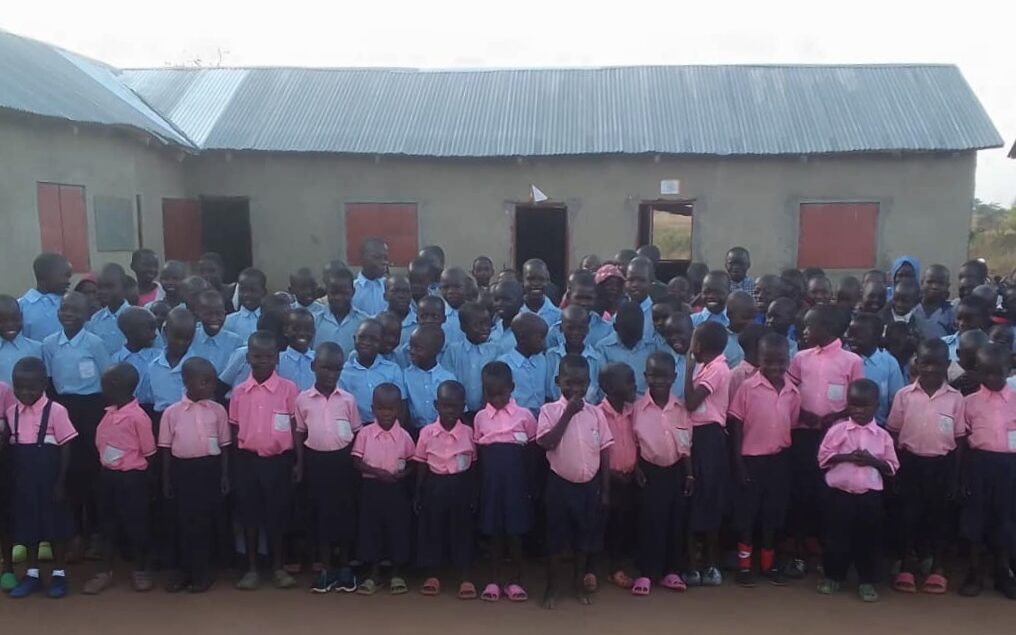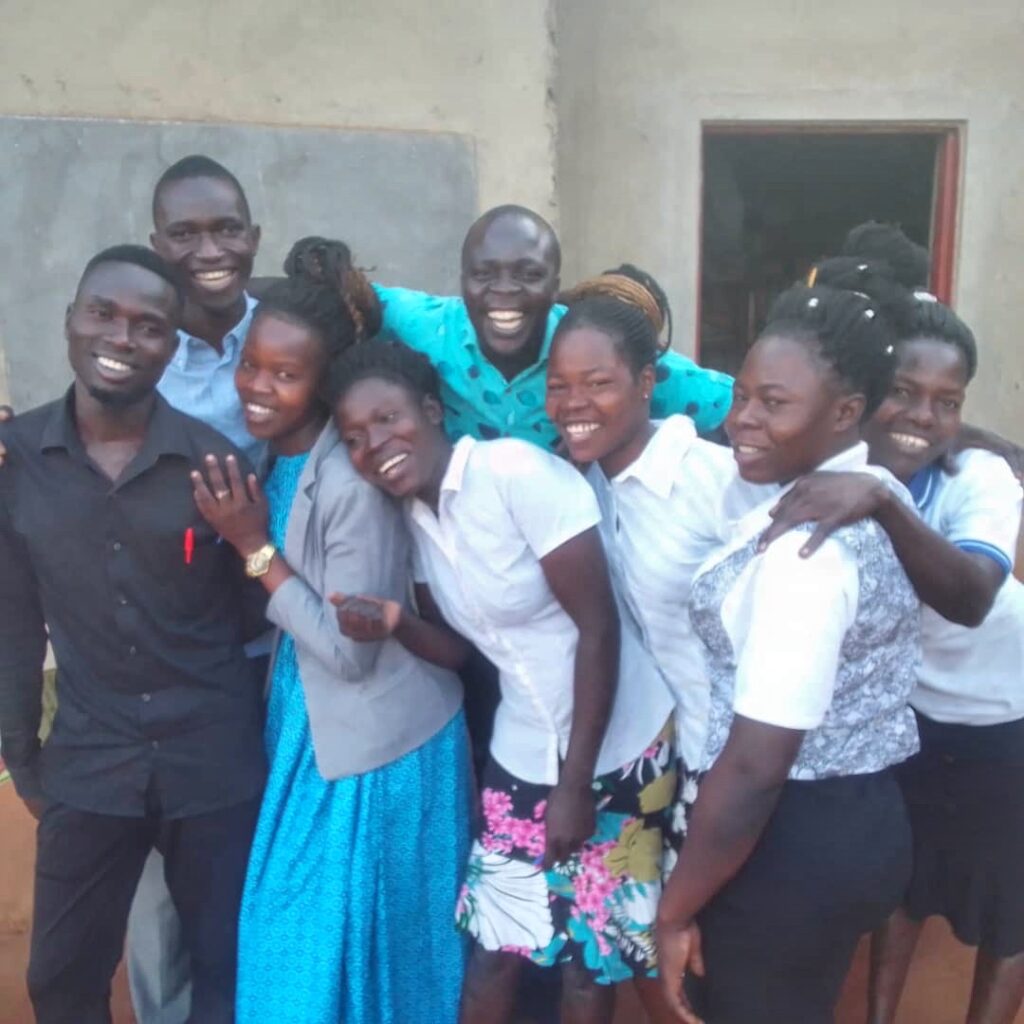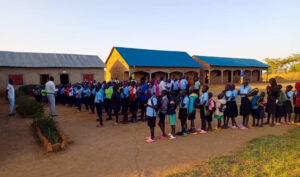
True Vine broke ground in October of 2020 after the COVID-19 pandemic had shut down all the schools in Uganda. During this time, our founders organized the purchase of land, construction of the initial building, and the hiring of six staff members to lead the way for our initial opening in February, 2022. We have grown from plastic chairs to appropriate student desk; from no windows or doors to very sturdy enclosures for our rooms; from no feeding program to now feeding over 250 individuals, daily. We strive for continual growth, as both staff and human beings, in our efforts to reshape the educational value in Pader District.
- Number of classrooms: 7
- Number of students: 270
- Number of villages being served: 5
- Olampur
- Paitino
- Aringogwaa
- Lanyatido
- Ogan
- Grades: Kindergarten levels 1-3, Primary grades 1-5

How We Are Different
Overall
Approach
We are using a student-centered approach that focuses on the needs of our students. This style of learning has shown to improve academic learning and support the overall development of young children. By designing our classrooms around the students, we aim to create a warm and positive school climate where children can feel safe, heard, and supported.
Literacy
Initiative
Northern Uganda exhibits a much lower literacy rate than the rest of the country, and Pader District, where Pajule is located, has a literacy rate below 25%, according to a 2018 Ministry of Education and Sports literacy report. Therefore, we are putting a major focus on literacy education at our school by using a heavily-researched and data-backed approach known as the Science of Reading. This pedagogy is designed by subdividing reading into five essential elements that build upon one another. These elements are Phonemic Awareness, Alphabetic Principle, Vocabulary, Fluency, and Reading Comprehension. It is proven to build a strong foundation for early literacy.
Behavioral
Support
We plan to use various progressive methods that are rooted in positive behavioral support to manage our students’ behavior and support their development. Our school culture encourages healthy habits from our students, while also allowing students the opportunity to examine their behaviors that can be improved. Children will be taught the skills they need for overall success through modeling, rewards, peer-interaction, community-building, and appropriate individual intervention.

